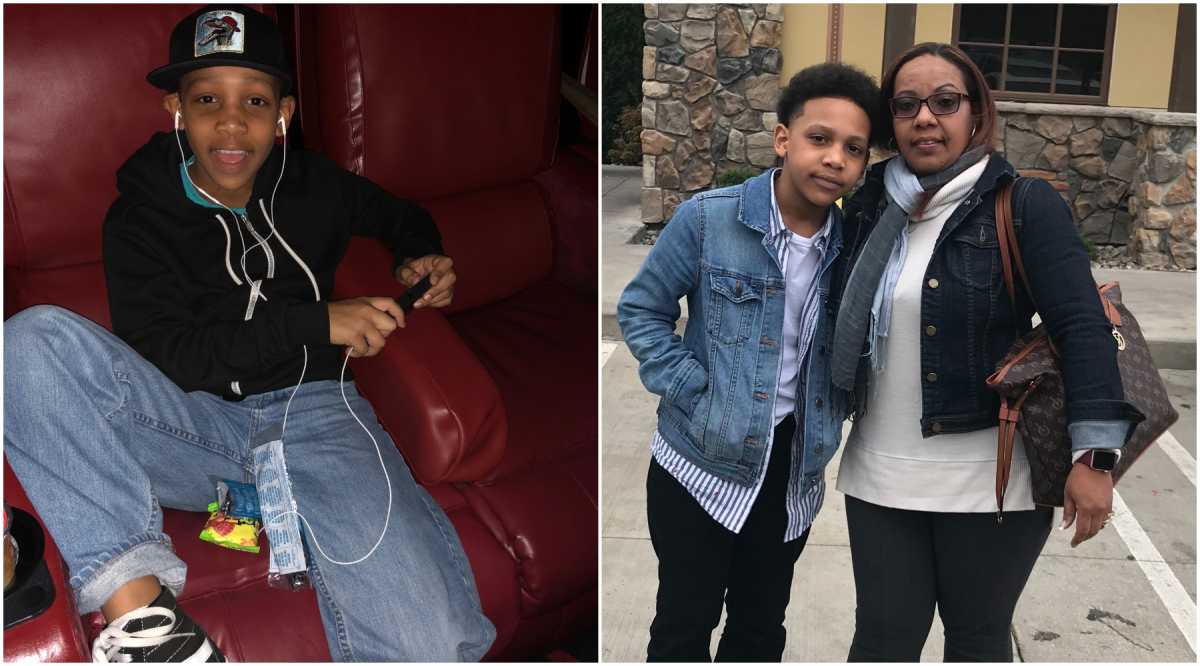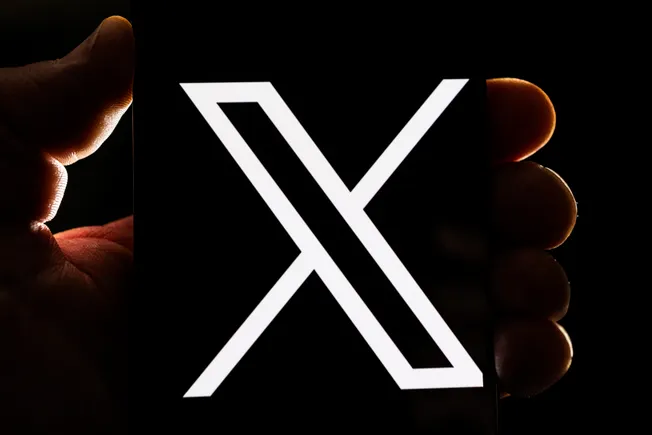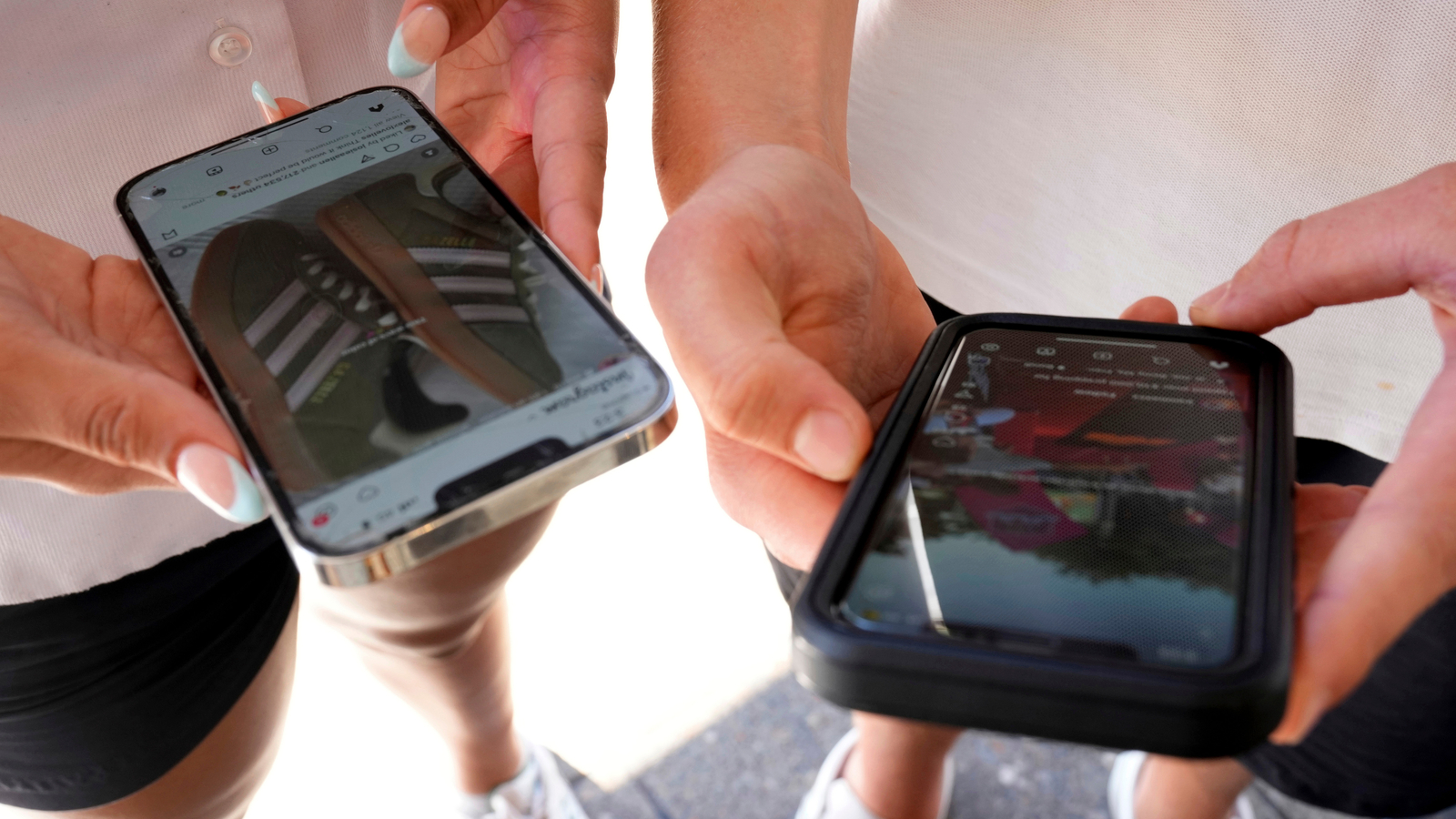#social media algorithms
#social media algorithms
[ follow ]
fromForbes
1 week agoImpact Of Zuckerberg's Testimony Is Truly Meta
The trial lawsuit against Meta and Google argues that Instagram and YouTube were designed to keep teens engaged at the expense of their mental health, prioritizing user engagement over the devastating human toll of social media addiction. This trial could decide whether social media companies can be sued for how their apps and algorithms are designed, not just for what users post.
Public health
Wellness
fromSlate Magazine
1 week agoSomething Bizarre Happened When I Attempted to Cut Back on Drinking. It Might Happen to You Too.
Limiting alcohol through nonalcoholic substitutes and targeted online motivation can reduce drinking without complete abstinence, leveraging habit cues and algorithmic reinforcement.
fromKotaku
1 month agoBaldur's Gate 3 Boss Calls For Civility As Highguard Gets Savaged
The launch of Highguard this week has reignited a debate around good manners. Over a hundred people worked for several years on a project they were passionate about. Instead of everyone giving it a fair shake and casually talking about what they did or didn't like about it, the conversation around the new multiplayer shooter was quickly subsumed by a torrent of knee-jerk negativity. Social media is full of people dunking on the game for clout
Video games
fromPsychology Today
1 month agoHow Social Media Is Destroying Families
This grief feels similar to what they would experience if their family member died, but in some cases, it feels even worse. Family estrangement has reached epidemic proportions. A 2022 survey found 29 percent of Americans are currently cut off from a parent, child, sibling, or grandparent, and a 2025 survey found 38 percent have experienced estrangement from a close family member at some point. These aren't just statistics. They're the tragic consequences of families ripped apart.
Psychology
fromwww.theguardian.com
1 month agoMy analogue month: would ditching my smartphone make me healthier, happier or more stressed?
Before I've poured my first morning coffee I've already watched the lives of strangers unfold on Instagram, checked the headlines, responded to texts, swiped through some matches on a dating app, and refreshed my emails, twice. I check Apple Maps for my quickest route to work. I've usually left it too late to get the bus, so I rent a Lime bike using the app.
Digital life
fromwww.independent.co.uk
1 month agoSir Nick Clegg takes swipe at Instagram and calls for tougher tech regulation
From reproductive rights to climate change to Big Tech, The Independent is on the ground when the story is developing. Whether it's investigating the financials of Elon Musk's pro-Trump PAC or producing our latest documentary, 'The A Word', which shines a light on the American women fighting for reproductive rights, we know how important it is to parse out the facts from the messaging. At such a critical moment in US history, we need reporters on the ground.
US politics
Digital life
fromwww.theguardian.com
2 months agoNo bickering around the Christmas tree! If your family are trapped by their algorithms, here's the way out | Dr Kaitlyn Regehr
Social media algorithms create individualized filter bubbles that intensify political polarization and holiday family tensions; discuss systemic technological processes rather than debating personal beliefs.
fromConsequence
2 months agoA Disinformation Network Drove Taylor Swift Discourse in 2025 -- And You Might Have Helped: Report
As Rolling Stone reports, the theory of Nazi identification was tied to such flimsy evidence as a lightning-bolt necklace that maybe-kinda-sorta looks like an SS symbol, or fixating on an out-of-context use of the word "savage" in the song "Eldest Daughter." The campaign began in places like 4chan but quickly went mainstream, relying on a stan army as well as argumentative normies to give the theory an algorithmic boost.
Music
fromHer Campus
2 months agoDoom Scrolling: How the Algorithm Traps You
There is a word that has been adopted for this practice, now known as doomscrolling. This term refers to getting stuck in a social media rabbit hole, consuming more and more information. It's the act of continuing to scroll and read new content, even if that content might be upsetting or worrying. Doomscrolling was one of the Oxford English Dictionary's words for 2020, as this practice seemed to arise during the pandemic when so many people were inside and using social media more than usual.
Digital life
fromPsychology Today
3 months agoThe Risks of AI and Social Media for the Developing Brain
The most prominent AI systems today are Large Language Models (LLMs) like ChatGPT, Claude, Grok, Perplexity, and Gemini. These systems work through computational models that mimic the human brain's structure, thus termed "neural networks." They consist of interconnected nodes that process and learn from internet data, enabling pattern recognition and decision-making in the field of artificial intelligence called "Machine Learning." LLMs are trained on massive datasets containing billions of words from books, websites, and other text sources.
Artificial intelligence
Social media marketing
fromBored Panda
3 months agoGym Influencer Lies Online And Doesn't See The Problem, It's A Dealbreaker For Her Boyfriend
Authenticity and entertainment demands clash, driving some creators toward manufactured or virtual personas while audiences gravitate to relatable, small-scale creators and curated authenticity.
fromPsychology Today
4 months agoThe Algorithmic Education of Boys
The teenage brain is built to help young people explore the questions, "Who am I?" and "Where do belong?" Answering these questions isn't a solitary endeavor. It's a profoundly social one. As young people try out different versions of themselves, they watch how others respond, gathering information about what feels authentic and what doesn't. Today, many of those experiments and reflections unfold online, where algorithms and influencers play an outsized role in shaping the feedback loop.
Mental health
fromForbes
4 months agoBreaking Free From The Echo Chamber: Why Growth Requires Dissonance
We live in a world where it's easier than ever to surround ourselves with people who think exactly like we do. Social media bubbles, corporate cultures and even leadership teams can all become echo chambers, places where the loudest reinforcement drowns out the most valuable challenge. The problem? Echo chambers create blind spots. They emphasize what we want to hear, not what we need to hear. They boost our confidence but rarely bring clarity.
Marketing
fromBusiness Insider
4 months agoNew York City sues social media companies, alleging they 'created a youth mental health crisis'
In a 327-page lawsuit filed Wednesday in the Manhattan federal court, the city alleged that Meta, Alphabet, Snap, and ByteDance created a "public nuisance" and a " youth mental health crisis" by intentionally exploiting the psychology of young users to keep them hooked. The city alleged in the complaint that the platforms' algorithms are designed to maximize engagement at the expense of children's mental health, contributing to sleep loss, chronic absenteeism, and risky behavior such as "subway surfing," meaning riding on top of moving trains.
New York City
fromMedium
5 months agoThe "Like" button: when perfect design causes catastrophic outcomes
The goal is to make buttons intuitive, easy to use, and - predictable. But is the disclosure, about participating in social media and expressing approval, full and revealing? I guess it all comes down to what you would define as a "positive experience". As I write this, two messed up, intertwined things are happening. Both can be directly linked to how the engagement dynamics of social media, driven by technology such as "like" buttons, has negatively impacted global politics.
US politics
fromIrish Independent
5 months agoToo many people silent on Charlie Kirk assassination, Simon Harris says after threats against his own family
Too many people use the word 'but' in relation to what happened overnight. "It's extraordinarily easy to condemn violent acts against somebody with whom you share their views. "It is much more important that we are consistent in terms of calling it out when it's against somebody whose work, whose views differ to us."
Miscellaneous
fromFortune
6 months agoI'm an expert in viral marketing and make my bones reaching Gen Z. The American Eagle and e.l.f. ragebait is just gasoline on the fire
If you've never heard the term, ragebait marketing is simple: a brand does something polarizing or controversial - sometimes accidentally but often intentionally - with the goal of going viral by wreaking havoc in the comments and inspiring think pieces and millions of dollars in free publicity. And the truth is, it works - at least on the surface, if you measure the success of a campaign in views.
Marketing
[ Load more ]












